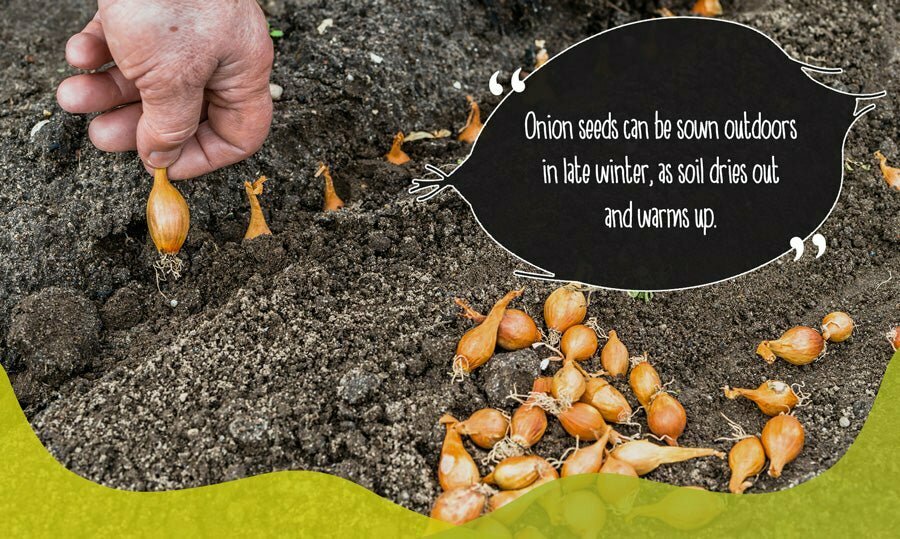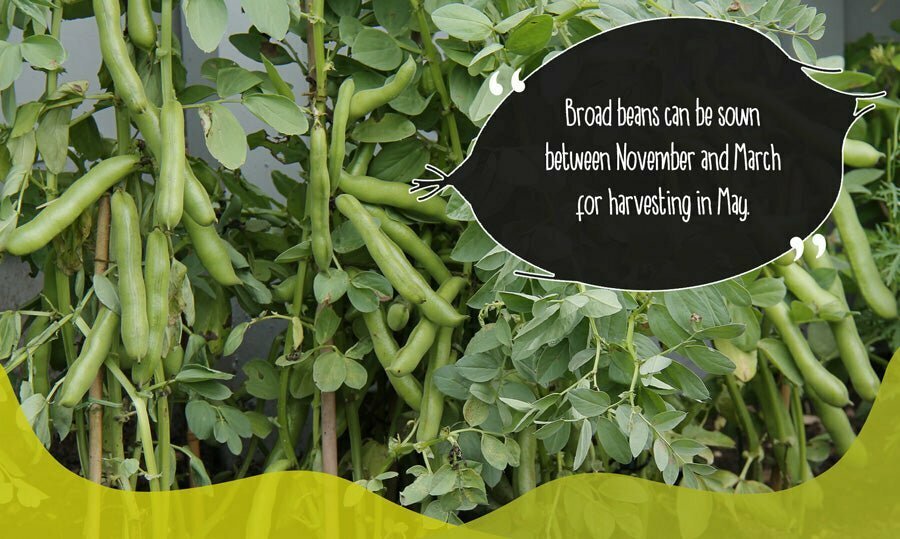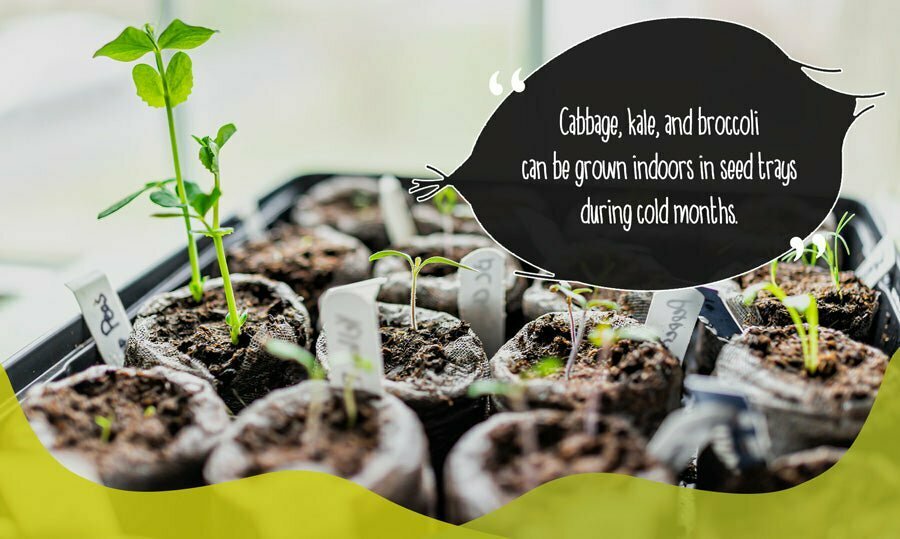What vegetables are best to plant in winter?
Winter gardening often centres around planning for the growing year ahead, watching out for pests and disease, and suppressing weed growth. But new life doesn’t have to wait for spring.
Growing seasonally is more sustainable, as plants adapted to conditions require fewer resources. Some winter vegetables may need to shelter in a greenhouse but shouldn’t need inefficient heating for the entire season.
What are ‘winter vegetables’?
What we think of as ‘winter vegetables’ tend to be those planted for winter harvesting, before winter sets in.
Many of these vegetables are planted in autumn, or even spring and summer, and then overwintered by keeping the plants warm once established.
These crops ensure a supply of fresh produce. They also keep microorganisms in your vegetable patch’s soil healthy, outside of the usual growing season.

Planting in winter
There are some hardy vegetables that can be planted throughout winter, though most will be started in greenhouses or under cover to protect from frost. Some will be grown and harvested within a few months, while others will grow slowly for a later harvest.
Growing onions from seeds
Onions grown from seed instead of sets (immature bulbs) take longer and require careful attention, but are less prone to bolting: when plants prematurely turn to seed or flower, damaging fruit yield.
Seeds should be sown in mid- to late winter in seed trays or seed starters, then kept in a greenhouse at 10–16°C while they grow. Note that seedlings will need hardening off before planting out.
Onion seeds can be sown outdoors in late winter, as soil begins to dry out and warm up. Plant them close together for plentiful, small bulbs. You can thin them out for fewer, large bulbs.
Winter root vegetables
Hardier vegetables often survive harsh weather and temperatures, but gardening insulation or glass cloches may still be necessary to protect them from the worst weather.
Root vegetables such as carrots, turnips and parsnips can be sown as seeds directly outside in November and December for an early crop, but should be protected as they grow.
Beetroot also does well, but should be started off in a greenhouse for the best chance.

Hardy green vegetables for winter
Perpetual spinach seeds can be sown throughout the winter. In a process known as ‘cut-and-come-again gardening’, it’s possible to harvest spinach regularly as the plant will grow continually.
Remember to remove the flowers, and keep the soil moist for the best yields.
Other leafy vegetables – from kale to hardy lettuce varieties – can be planted in autumn for cut-and-come-again harvesting throughout winter. Some will need insulation or protection under cold frames, but others will do well in all but the harshest weather.
Broad beans can be sown between November and March for harvesting in May. Some varieties can be sown in February for summer harvesting. Peas can also be sown from late autumn to early winter, and overwintered under protective layers to produce an earlier crop.
Growing potatoes in winter
While potatoes can’t be planted in winter due to their susceptibility to disease, if you’re growing seed potatoes (ordinary varieties that have been certified virus free) winter is the time to chit: allow shoots to sprout before planting.
How to chit potatoes
Place the end with the most eyes or dents (the ‘rose end’) face up in an egg box or container. The container should sit in a light, frost-free place, such as a windowsill or greenhouse. Once shoots are about an inch long, the potatoes are ready to plant.
Early into winter, rub off the weakest shoots. Leave about four per potato to give the healthiest shoots the best chance.
The earliest potatoes usually go into ground around late March. This is because they’re susceptible to frost and need a lot of sunlight. They should be sheltered under winter protection while growing.

Growing vegetables indoors during winter
Cabbage, kale, and broccoli can be grown indoors in seed trays on a sunny windowsill once the weather becomes too cold to sow outdoors. They can also be overwintered to protect against the worst weather, as can chard and chicory.
The best growing medium for vegetables planted in winter
One of the most important factors for winter crops is a good growing environment. Vegetables that grow during winter rely even more on healthy soil for good growth, as less sunlight is available.
An aerated soil that drains well will help avoid rot, mildew, and disease, and allow air to reach the roots. A substrate with good water retention also provides a reliable supply of moisture without waterlogging.
Coco coir provides these benefits. It is also naturally sterile, helping to keep pests and disease at bay.
Our range of peat-free compost is sustainable organic, vegan friendly, protects against frost, and suppresses weed growth. Browse the complete selection in our online shop today, and get your winter growing off to the best possible start.










